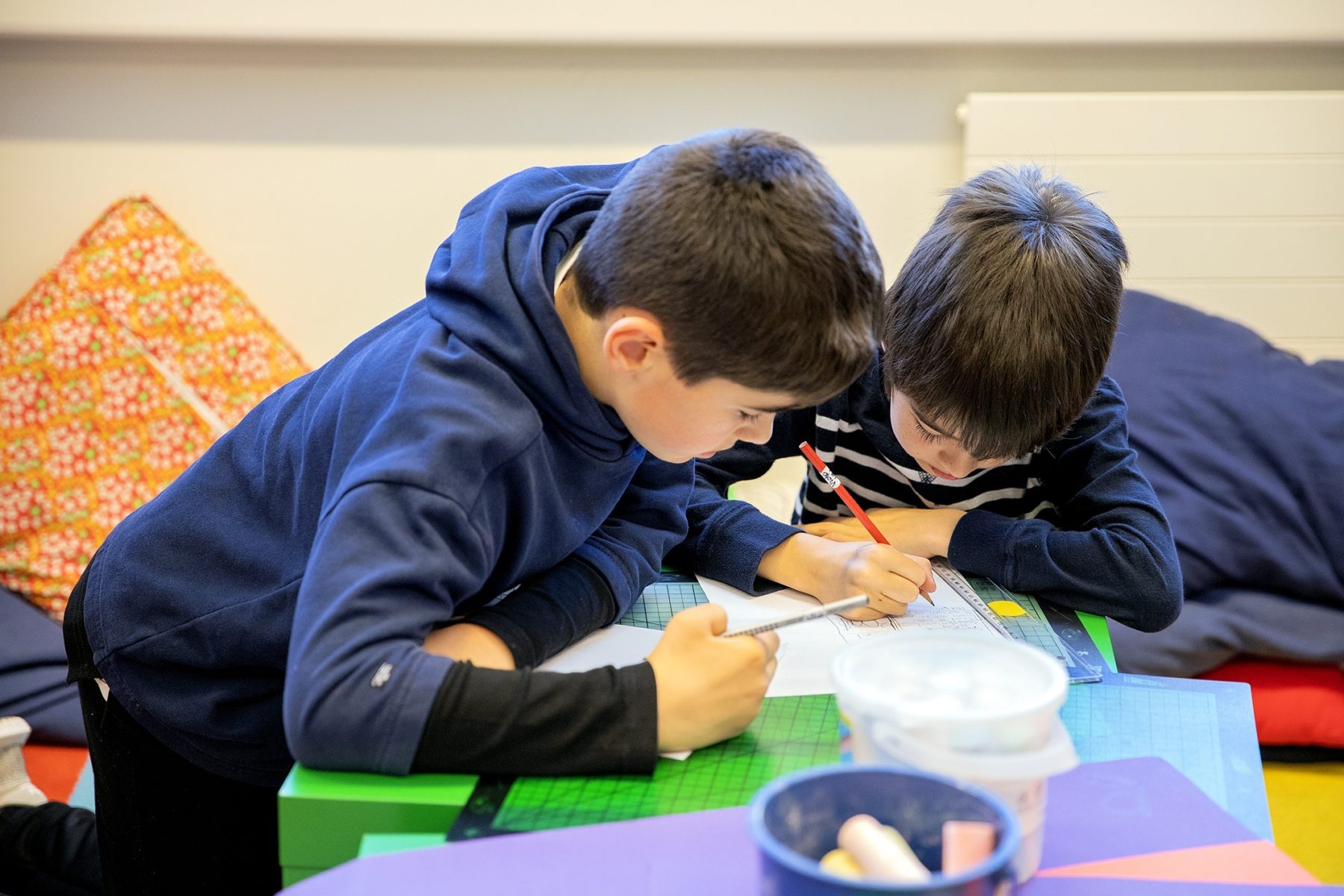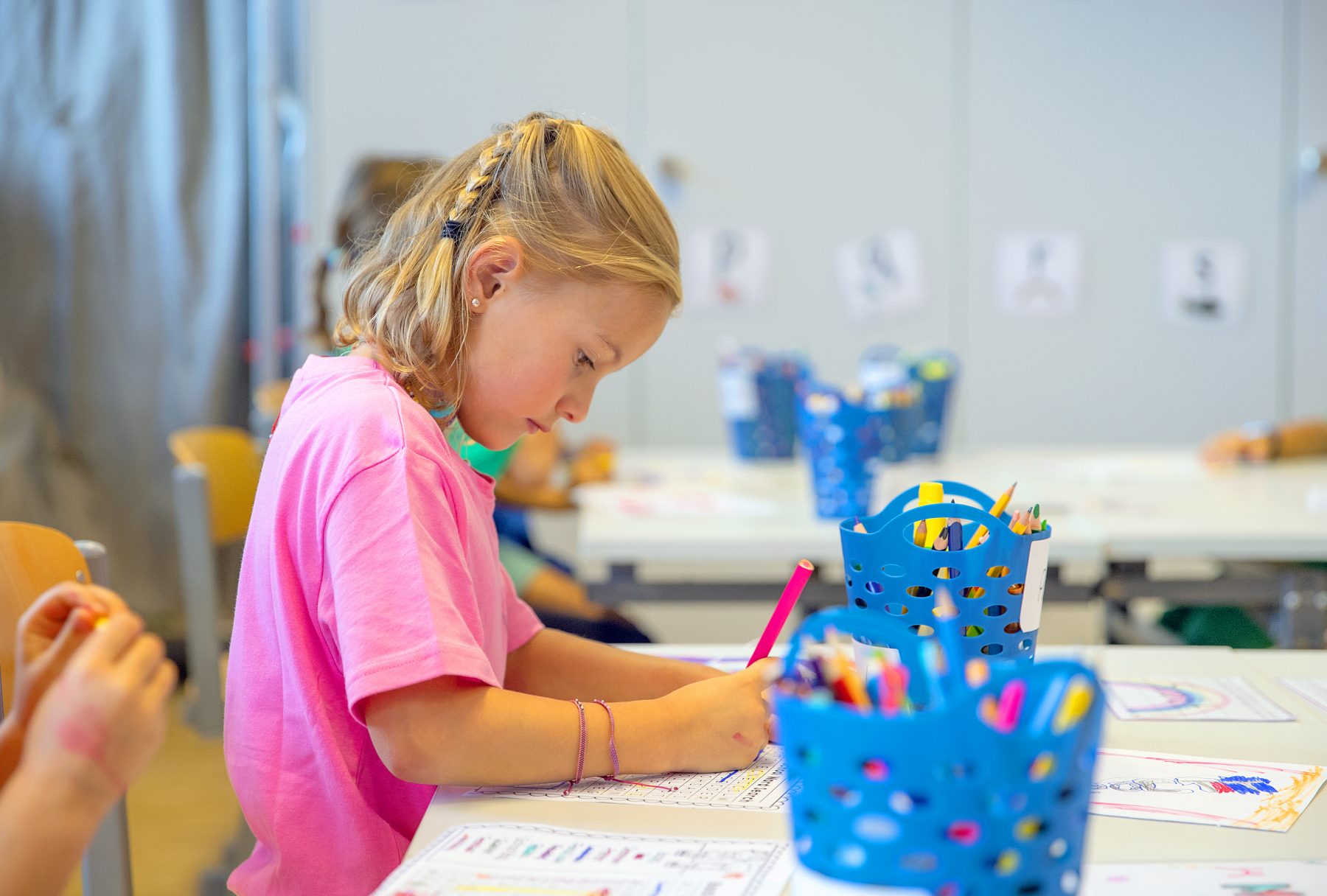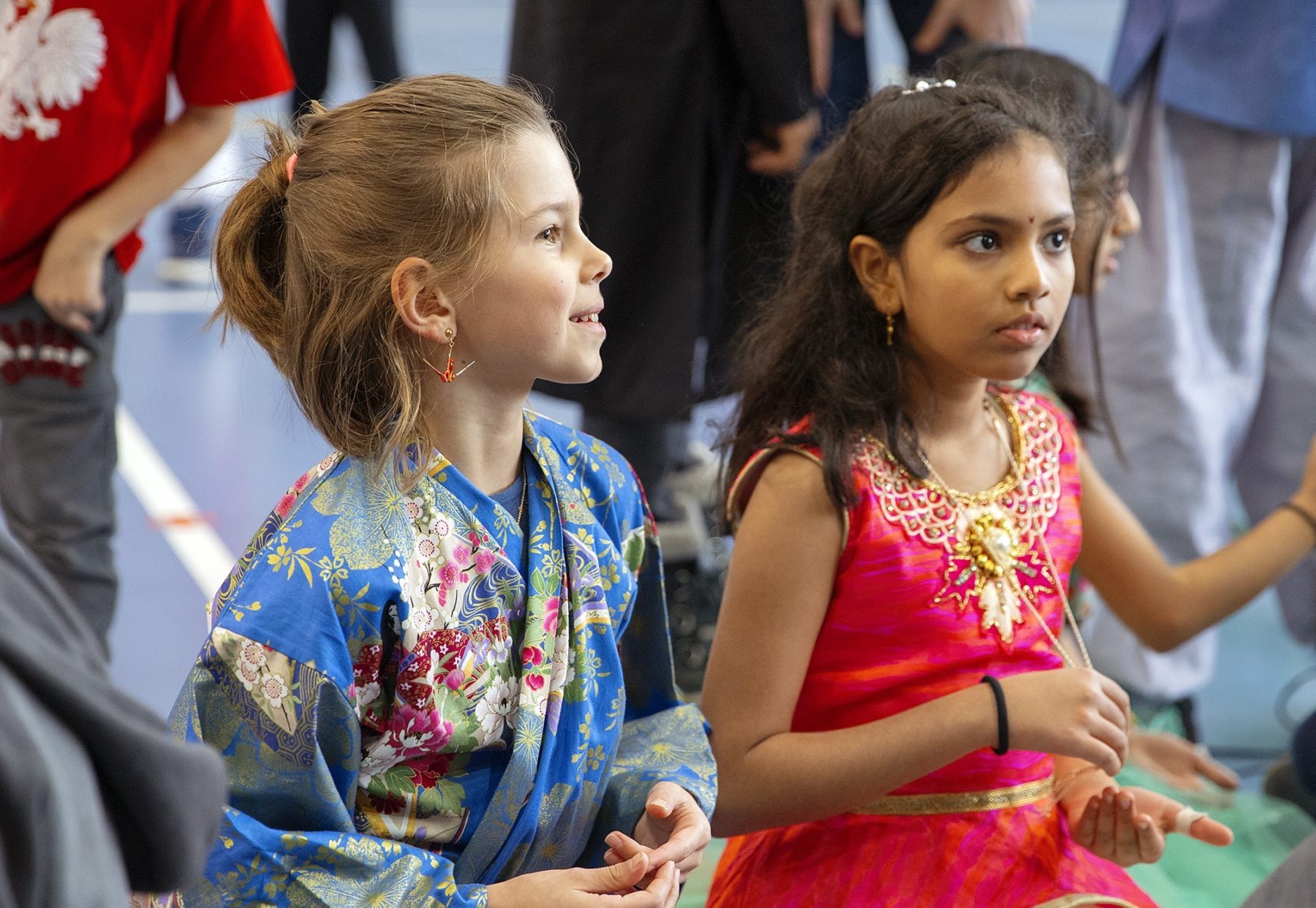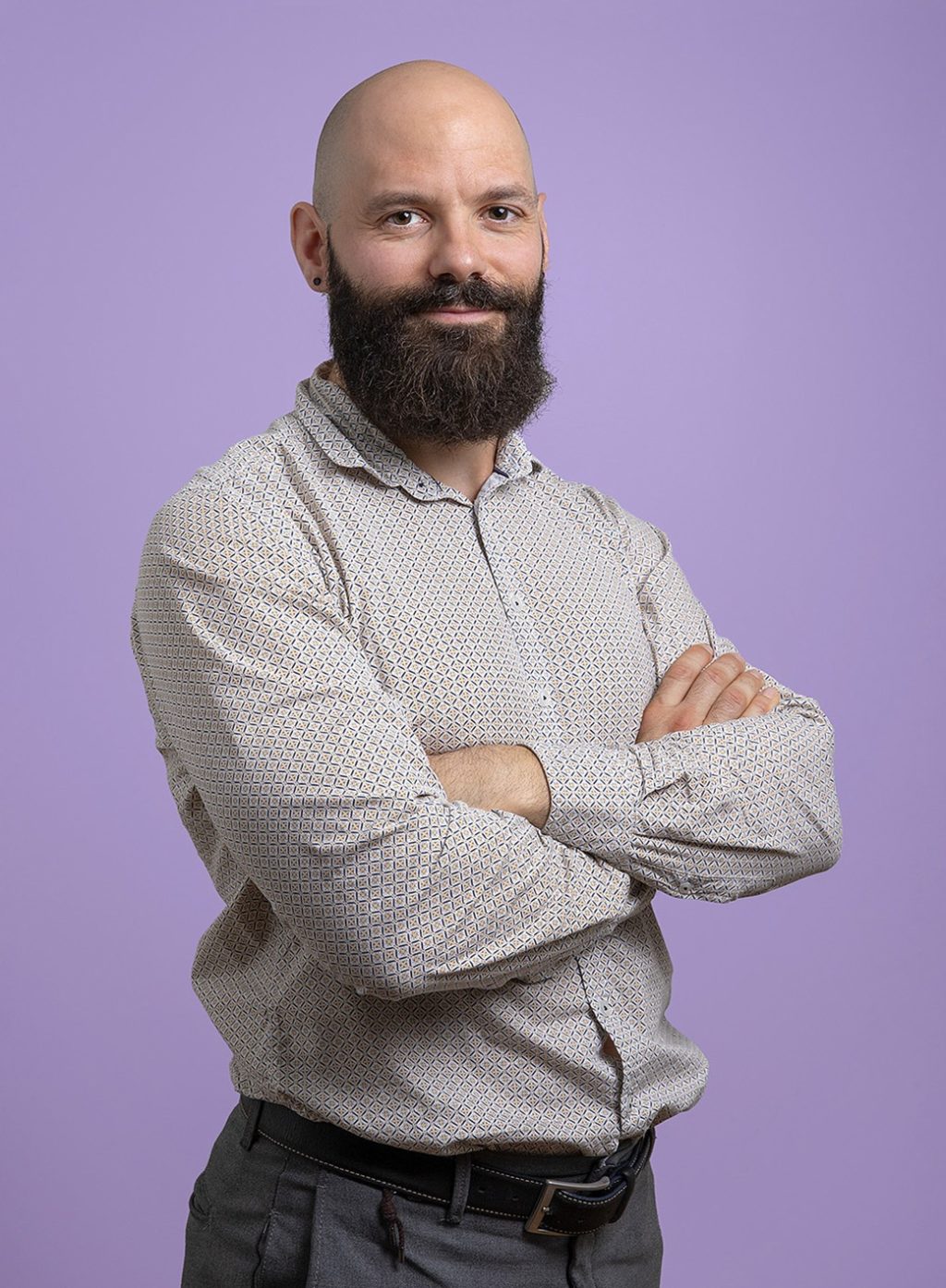
Dual Language Programme
Teaching in English and French
During the 2021 school year, the International School of Lausanne (ISL) introduced a dual language programme for students in Year 4 and Year 5. This bilingual model grew to accommodate Year 3 and Year 6 in 2022-2023.
Year 4 and Year 6 students start the week with two days in French and the following three days in English, and reversely for students in Year 3 and Year 5.
Benefitting from an immersive programme
Dual language programmes foster bilingualism, biliteracy, enhanced awareness of linguistic and cultural diversity, and high levels of academic achievement through instruction in two languages.
Two classroom teachers, speaking English and French, co-teach the Primary Years Programme (PYP) through a Content and Language Integrated Learning approach (CLIL). The emphasis in CLIL is learning through language use rather than learning about a language. However specific language instruction supports the development of the correct language forms.
Children in the programme continue to learn according to the principles of the PYP. The various Units of Inquiry are taught in both languages with the aim of developing learner autonomy, tailoring the curriculum to learners’ interests, giving them space to follow the learning paths they choose, and creating a learning environment of trust where children can make mistakes and enjoy learning.
A co-teaching model: two teachers speaking one language each and sharing responsibility for the academic material.The French and English teachers plan together to develop an integrated curriculum and ensure that content taught in each language is complementary.
Key Facts
Dual-language at ISL
260
STUDENTS IN THE PRIMARY SCHOOL
79
STUDENTS ENROLLED IN THE DUAL LANGUAGE PROGRAMME FOR THE ACADEMIC YEAR 2022-2023
86%
OF OUR CURRENT PRIMARY SCHOOL FAMILIES SHOWED STRONG INTEREST IN THIS APPROACH TO LEARNING

Reasoning behind implementing this new programme
Dual Language Pathway at ISL
The creation of a dual language pathway at ISL is a result of being responsive to our community, our commitment to the school’s mission of recognising the unique potential of every student and providing our learners with an opportunity to play a responsible role in a multicultural world, and the recognition of the benefits of being multilingual demonstrated in research.
A significant percentage of our learning community are committed to settling in Switzerland. Culture and language are inextricably linked and parents welcome the opportunity for their child to be a part of a dual language pathway as they integrate into the Swiss way of life.
Research highlights that speakers of multiple languages learn further languages more easily – they seem to have a higher metalinguistic awareness (in other words, they show a better understanding of the nature of linguistic structures) and a more analytical approach towards the social and pragmatic functions of language.
Research also suggests that speaking multiple languages has other cognitive benefits. Neuroanatomical science provides evidence that studying a second language increases brain plasticity and improves memory. These can lead to enhanced performance in creative thinking and problem-solving skills making learners better not just at other languages, but across other academic domains.

Who is the dual language programme for?
The Dual Language Programme suits the needs of a variety of students (and parents), including:
- Current ISL families who seek a stronger focus on both French and English
- Local or newly-arrived families in Lausanne area who are looking for an international curriculum and want their children to learn in two languages (English and French)
- French speaking Swiss families who are looking for a greater exposure to English for their children, while continuing French as an academic language.
The Dual Language is available from Year 3 to Year 6.

Multicultural environment

“This programme is a great learning opportunity for the students participating. They will be exposed to two languages almost equally and immersively, which is very beneficial to their learning.”
